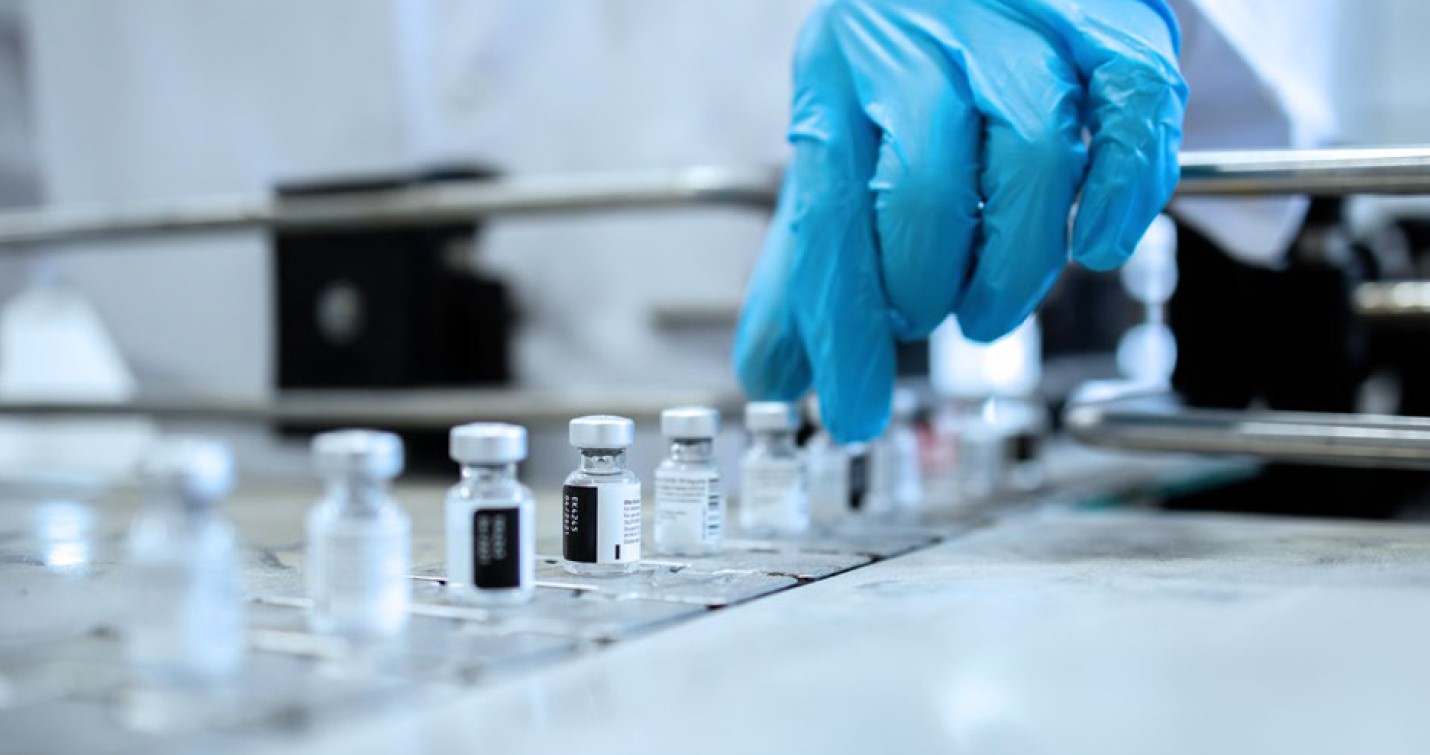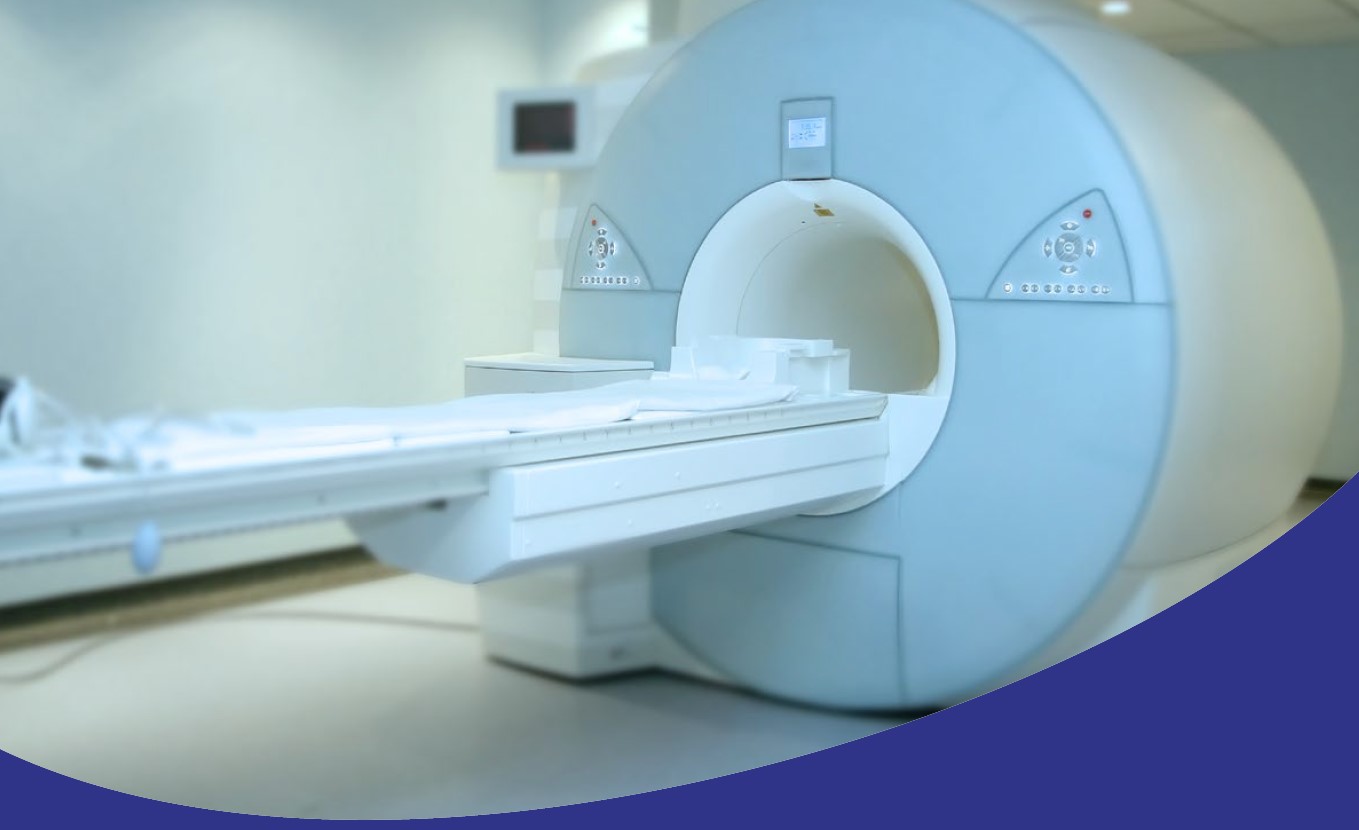Specialty Pharmaceuticals
Transforming healthcare through innovation
The pharmaceutical and biotechnology industries are undergoing a period of tremendous innovation thanks to advancements in technology.
Traditionally slow in the adoption of technology, these industries are now witnessing new discoveries and applications in a number of areas, including pharmacogenomics gene therapy, cell therapy, RNA-based therapies, nuclear precision health solutions and radiomics.
Under the goals of Vision 2030, Saudi Arabia has embraced these incredible new technologies to create life-saving and world-leading pharmaceuticals and treatments.
Pharmacogenomics Gene Therapy and Cell Therapy
In 2022, more gene and cell therapy treatments are expected to be approved around the world than ever before.1 There have been massive investments in the development of therapies such as developing next-generation, tissue-specific adeno-associated viruses for gene therapies targeting Alzheimer’s disease, Parkinson’s disease, and rare diseases.2
In fact, private equity investments in gene and cell therapy have reached nearly $68 billion in 2021, which accounted for about a third of all private investments made in life sciences that year.3
The Saudi Genome Program is one of the national projects under Vision 2030. The program aims to reduce the incidence of genetic diseases using advanced genomic technologies.4
It will achieve this by building a genetic database for the Saudi population and establishing advanced infrastructure to support the field of genomics and bioinformatics.5 This, in turn, enables scientists and researchers to benefit from the database.
Armed with this information, scientists and researchers are developing diagnostic and prevention tools to reduce the incidences of genetic diseases and enhance the community’s well-being.
Already within The Kingdom, approved treatments using cell and gene therapy include inherited blindness and leukemia.6,7

While the cell & gene therapy industry is a beacon of hope, it does face challenges of growth. To effectively scale, the industry needs greater clinical trial capacity, more talent throughout all levels of the workforce and a more efficient transition of the innovative therapies from research stages to manufacturing.8,9 To overcome barriers to manufacturing challenges, the sector should look to shift from the manual ad-hoc hospital labs to larger, dedicated facilities with automated processes that remove bottlenecks and increase reliability and speed to market.10,11
As approaches in pharmacogenomics gene therapy and cell therapy increase, Saudi Arabia is investing to ensure it is a global leader. To meet the demand and remain competitive, healthcare manufacturers must prepare for the challenges of scaling the therapies.
RNA-based therapies
The COVID-19 pandemic has ushered in an era of RNA-based therapies.
A recent search of a database that tracks clinical trials found more than 1900 studies using mRNA at various phases. The studies cover treatments for a wide range of diseases, such as respiratory diseases, different types of cancer, herpes, metabolic syndromes, kidney diseases, heart diseases, and even obesity.12
RNA-based medicines, vaccines and other therapies are very promising healthcare technologies because they are cost-effective, relatively simple to manufacture, and can target diseases and conditions once thought untreatable through conventional approaches.
Pfizer and BioNTech — two companies that were among the first to develop effective mRNA COVID-19 vaccines — are exploring RNA therapies for other conditions that affect large numbers
of people.
Pfizer is working to develop a treatment against seasonal flu,13 whereas BioNTech is developing individualized therapies for specific tumors to teach the body to fight off advanced cancer.14

Recently, a team at Yale patented an RNA-based technology to vaccinate against malaria while another team of Yale researchers developed a novel lab-stage mRNA vaccine that protected guinea pigs from Lyme disease and other tick-borne diseases.15,16,17
RNA-based therapies are also providing potential opportunities for new breakthroughs for HIV vaccines. An experimental HIV vaccine using mRNA technology was found to be safe and reduced the risk of HIV-like infection
in monkeys.18
Beyond developing in vivo RNA treatments, researchers are also exploring new methods for genome engineering, genetic reprogramming, T-cell and dendritic cell-based immunotherapies using mRNA ex vivo.
These cutting-edge approaches are being researched for treating cancer and infectious diseases, rare and cardiometabolic conditions, and the production of on-demand personalized vaccines.19,20
From seasonal flu and Lyme disease to cancer and HIV vaccines, RNA-based therapies are undoubtedly launching a new period of healthcare breakthroughs.
Nuclear Precision Health Solutions and Radiomics
Nuclear medicines are specialized treatments containing radioisotopes intended to be used for diagnostics and therapeutic purposes, according to the World Health Organization.21 The acceptance & adoption of nuclear medicine has been driven by demands for higher detection accuracy, improved detection speed and a desire to deliver an elevated patient experience.22
As a result of the growing demand, the global nuclear medicine market size is expected to reach US$12.17 billion by 2028.23 While smaller than other sub-sectors in the pharmaceutical industry, nuclear medicine represents a promising way forward in the detection and treatment of diseases.
Nuclear medicine enables doctors to diagnose diseases and tumors or recurrence, radiation planning, localization, and track treatment progress.24

Nuclear medicine is opening up new diagnosis and treatment options for conditions such as respiratory disorders, thyroid disorders, bone diseases, oncology, and lymphoma. For instance, radio-labeled antibodies enabled targeted therapy in the treatment of cancer. Radio-labeled antibodies only attach to the target site and provide radiation effect directly to the cancer cell.25
Saudi Arabia has a state-of-the-art research center dedicated to radiopharmaceutical manufacturing and radioisotope research.
On-demand and reliable availability of radiopharmaceuticals are essential elements of a thriving nuclear medicine industry. The mission of the center is to provide diagnostic and therapeutic radiopharmaceutical products, which are manufactured by employing the highest quality standards, and to make the Kingdom self-sufficient in all its radiopharmaceutical requirements.
The radiopharmaceutical manufacturing program is not only unique for a major medical center, but also an essential component of providing specialty services and quality patient care for the population of the Kingdom.26 The center manufactures a wide range of radiopharmaceuticals used in diagnostic medical imaging as well as radiotherapy. The high-quality products are supplied to some 50 nuclear medicine centers throughout the Kingdom.
In addition, the government is developing a new pharmacy strategy to support the goals of Saudi Vision 2030, which include nuclear medicines.
The goal is to implement nuclear clinical pharmacy services in the Kingdom, which will include upskilling pharmacy workforces on all the requirements of basic nuclear pharmacy services.27
As demand for nuclear medicine continues, the industry will face unique challenges. These include shortages of necessary molecules, such as Technetium-99m – a complex and expensive production process – and navigating the shorter shelf-life of nuclear medicine, which can restrict how it can be used and impede distribution.28

Despite the challenges facing the nuclear medicine industry, new approaches will revolutionize diagnostics and therapeutics in Saudi Arabia and throughout the world.
Specialty pharmaceutical innovations are changing the future of healthcare treatment. The next decade will bring incredible new approaches and medicines to treat a broad range of diseases. This will not only have a positive impact on people’s lives but will also transform how the healthcare industry performs research, sources materials, manufactures & distributes treatments and recruits & trains talent.
The commitment and investment that Saudi Arabia has made in the pharmaceutical industry means it is well-positioned to be a global leader in developing, manufacturing and distributing the medical innovations of tomorrow.
References
1 https://www.biopharmadive.com/news/gene-therapy-editing-trends-questions-2022/617142/
2 https://www.genengnews.com/a-lists/seven-biopharma-trends-to-watch-in-2022/
3 https://www.cellandgene.com/doc/cell-gene-therapies-investment-outlook-in-beyond-0001
4 https://www.vision2030.gov.sa/v2030/v2030-projects/saudi-genome-program/
5 https://shgp.kacst.edu.sa/index.en.html#technologies-bioinformatics
7 https://www.gosh.ae/case-studies/saudi-arabia-boy-receives-pioneering-car-t-cell-therapy-treatment
8 https://www.cellandgene.com/doc/what-to-expect-from-cell-therapy-and-gene-therapy-in-and-beyond-0002
9 https://www.biopharmadive.com/news/gene-therapy-editing-trends-questions-2022/617142/
10 https://www.cellandgene.com/doc/what-to-expect-from-cell-therapy-and-gene-therapy-in-and-beyond-0002
11 https://www.statnews.com/sponsor/2021/06/10/whats-next-for-gene-therapy/
12 https://www.thinkglobalhealth.org/article/mrna-therapeutics-technology-saved-world
13 https://www.businessinsider.com/pfizer-ceo-covid-vaccine-mrna-advances-better-humanity-flu-2021-1
14 https://www.nature.com/articles/s41586-020-2537-9
15 https://yaledailynews.com/blog/2021/03/12/yale-lab-develops-revolutionary-rna-vaccine-for-malaria/
16 https://www.theatlantic.com/ideas/archive/2021/03/how-mrna-technology-could-change-world/618431/
17 https://www.thinkglobalhealth.org/article/mrna-therapeutics-technology-saved-world
19 https://www.frontiersin.org/articles/10.3389/fbioe.2021.628137/full
20 https://www.thinkglobalhealth.org/article/mrna-therapeutics-technology-saved-world
21 https://www.grandviewresearch.com/research-insights/nuclear-medicine-market-emerging-technology
25 https://www.grandviewresearch.com/research-insights/nuclear-medicine-market-emerging-technology
26 https://www.kfshrc.edu.sa/en/home/research/departments/cyclotronradiopharmaceuticals
27 https://www.ijphs.org/article/2021/10/2/105530ijpcs2021108
28 https://www.grandviewresearch.com/research-insights/nuclear-medicine-market-emerging-technology


